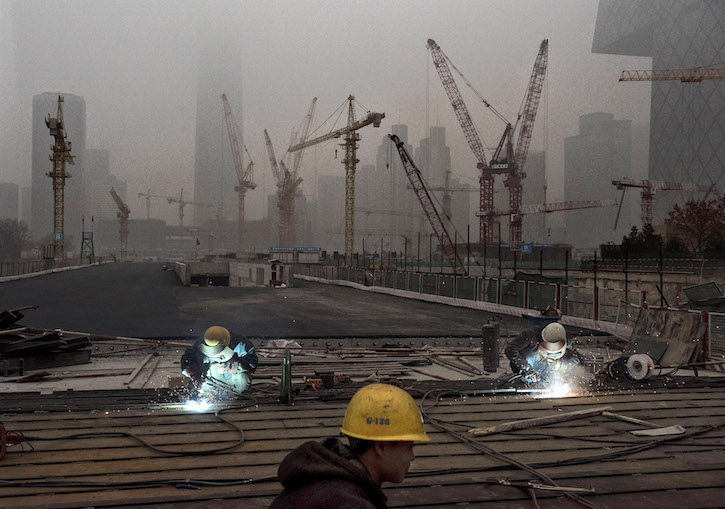
By Houze Song
Beijing’s recent move to increase deficit spending and cut taxes has provided hope to many who have been worrying about the prospects for the Chinese economy. The hope is that such policies will both solve the current structural problems and boost China’s medium-term growth rate. Indeed, Beijing also views fiscal policy as one important component of its “supply side reform.” However, a careful study of China’s current economic problems and the design of Beijing’s new fiscal measures suggests that the new fiscal program will, at best, have only a limited positive impact. On the other hand, the potential negative impact of fiscal expansion on the sustainability of long-term government debt should not be overlooked.
First, the potential impact of Beijing’s fiscal policy is constrained by slower revenue growth: Increased government spending is less than the deficit growth—and therefore the effect is less stimulative than it appears. Overall revenue growth is slower than GDP growth in last year, and it is expected to further slow down as revenue has been closely tied to the growth of industrial sector. This problem is especially severe at the local level. Until now, revenue shortfalls have been met through the sale of government assets (e.g. land), which by definition is not sustainable. The idea of collecting more dividends from State Owned Enterprises (SOEs) to fund fiscal deficit has been around for more than a decade. So far, the amount collected is small and used primarily to support weak SOEs.
Second, fiscal expansion is not a free lunch. Any deficit-financed stimulus by definition will result in increasing government debt. Historically, unsustainable government debt has always led to economic collapse. The experience of previous populist policies (Latin America in the 70’s and 80’s, the recent European sovereign debt crisis) have demonstrated that deficit-financed fiscal expenditure, even if it is allocated to welfare programs, will eventually hurt average households. The only reason for a fiscal expansion is if the economy is below its potential, but that doesn’t seem to be the case currently in China.
Third, there are some flaws in Beijing’s latest fiscal program that make it less effective than it should be. It is widely believed that Beijing should facilitate the transition to a service economy through retraining existing industrial workers. And Beijing has actually allocated a significant amount of money for labor retraining in its latest fiscal budget. However, a precondition for labor retraining is that there are abundant job opportunities available in these new industries. In fact, Beijing’s other recent policies have actually prevented that from happening. Beijing has spent a lot of its resources to support distressed traditional sectors, a policy that will inevitably crowd out resources for emerging sectors and limit the number of jobs they create. As a result, the employment sub-index of China’s purchasing manager index for services sectors has been mostly in contraction territory in the past two years, meaning services sectors are not actively hiring new people.
Beijing’s plan to reduce employer’s social security contribution, a key pillar of the so-called “supply side reform,” is also problematic. This is supposed to help firms, since they are now allowed to contribute less to social security funds. But in a competitive market, any corporate tax cut will eventually translate to price cuts. That will benefit the consumers, but as we learned from the recent low oil price, consumers will not spend the money they have saved from lower prices. As a consequence, cutting social security contributions likely will neither help firms nor stimulate the economy. Besides, if there is no associated cut in social security benefits, then the policy would effectively increase the government deficit.
Fourth, there are many solutions that would be better than using fiscal policy. Take increasing rural household income for example. Instead of running a large redistribution program that will eventually endanger fiscal sustainability, Beijing should pay farmers market prices for their land, instead of confiscating it at arbitrarily low prices. In sum, fiscal policy is only a tool for facilitating, not substituting, China’s structural reform. Without reform implementation, fiscal policy can only provide a temporary growth boost while endangering long-run fiscal sustainability.
[contentblock id=24]


